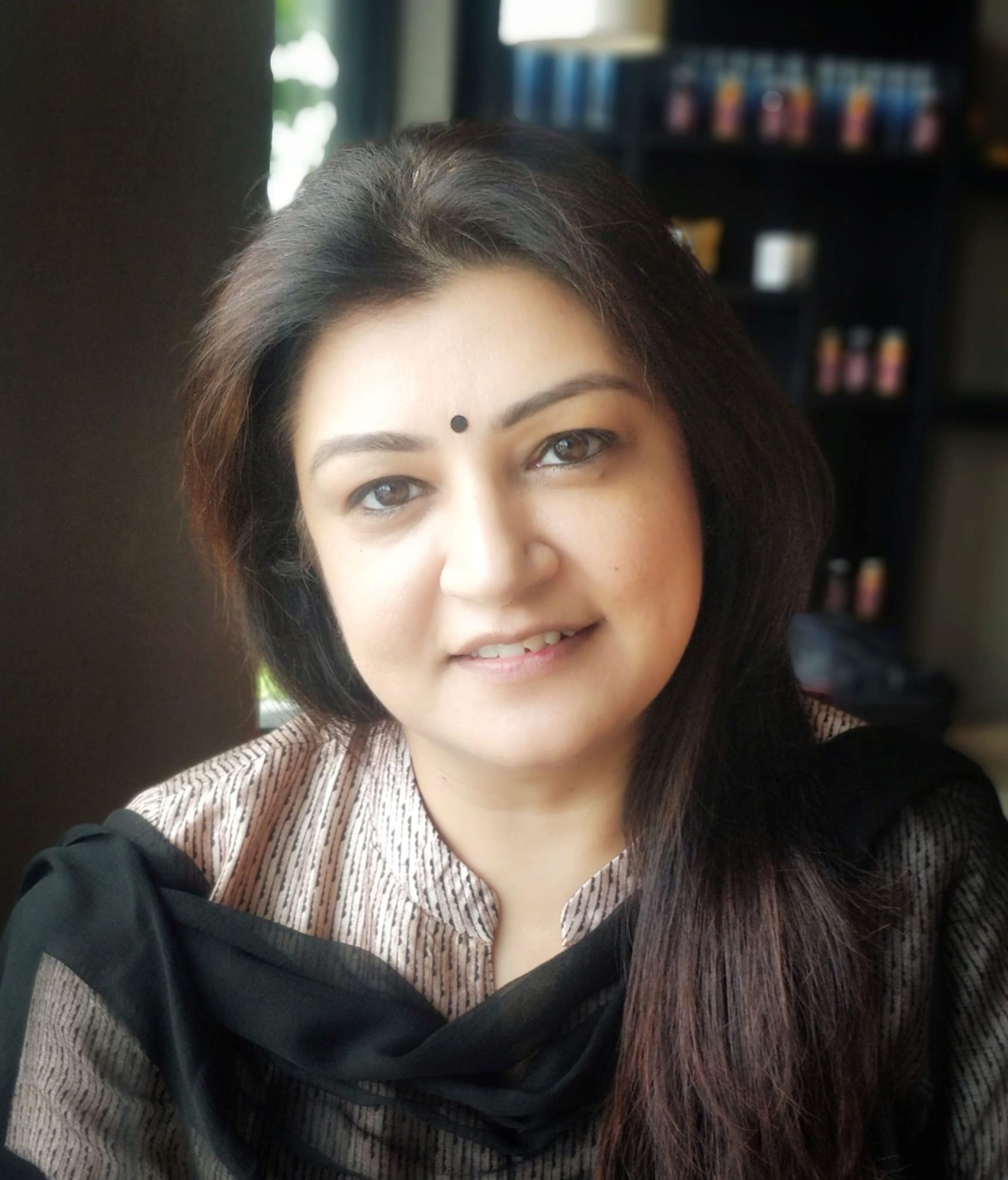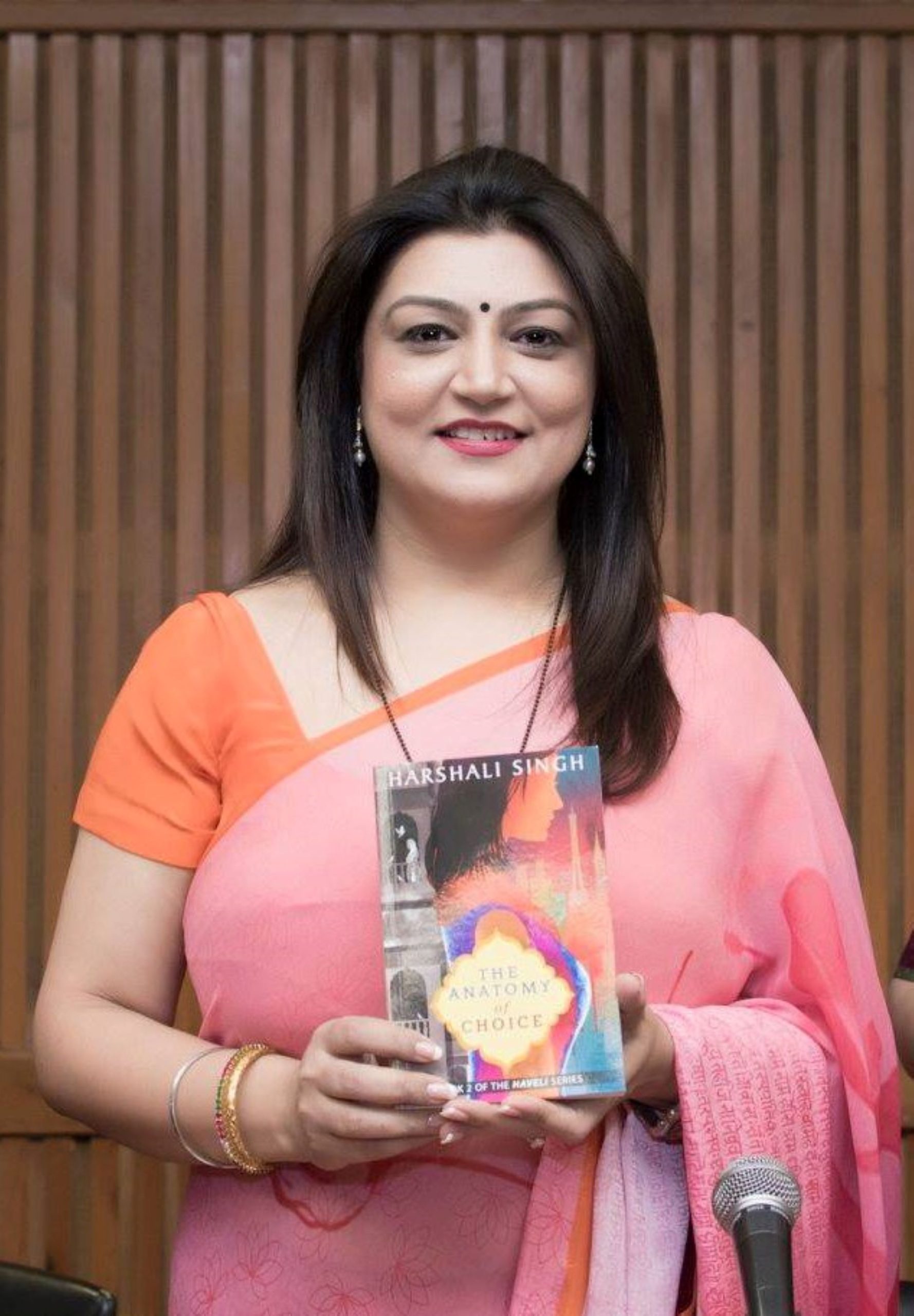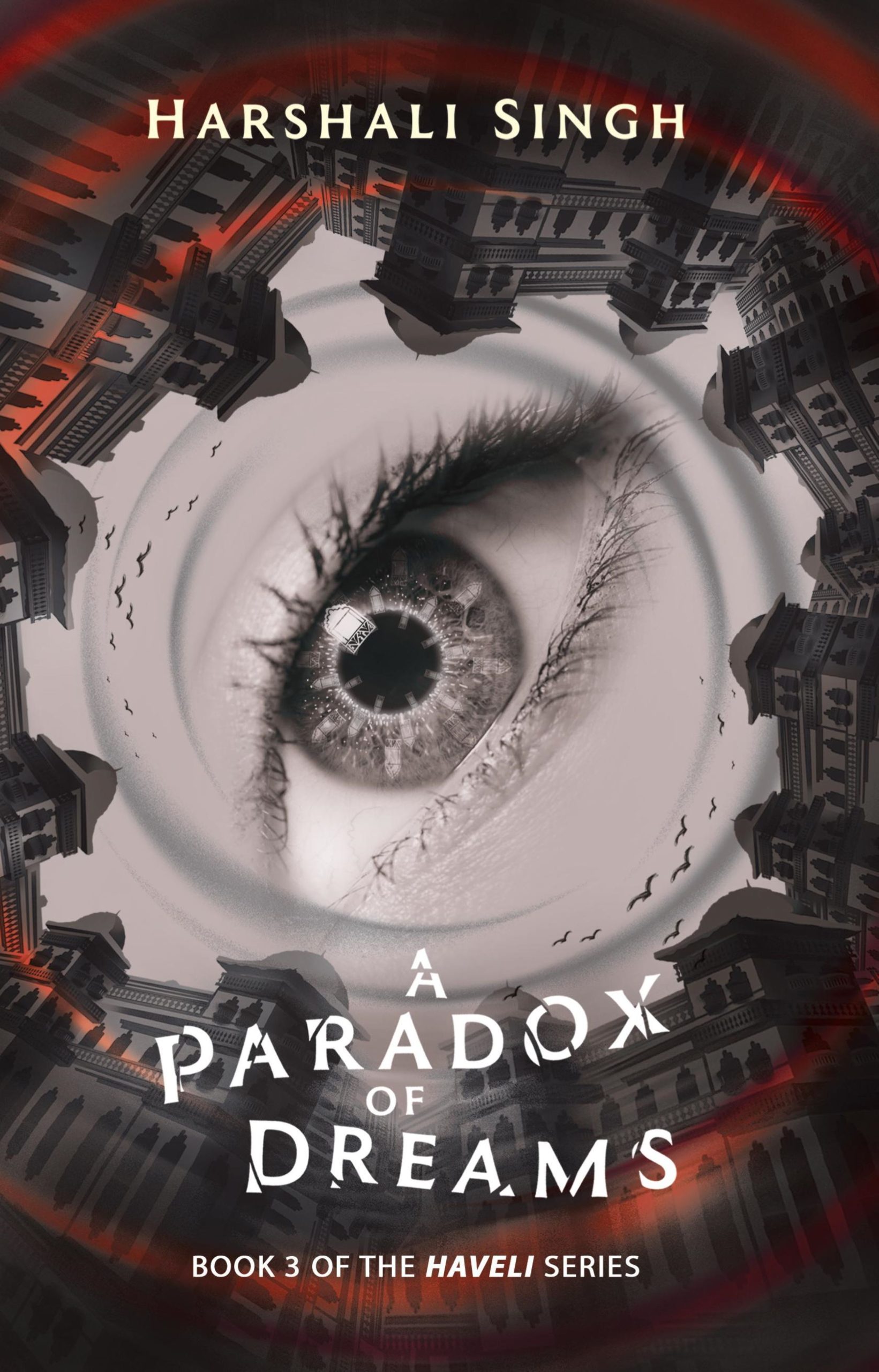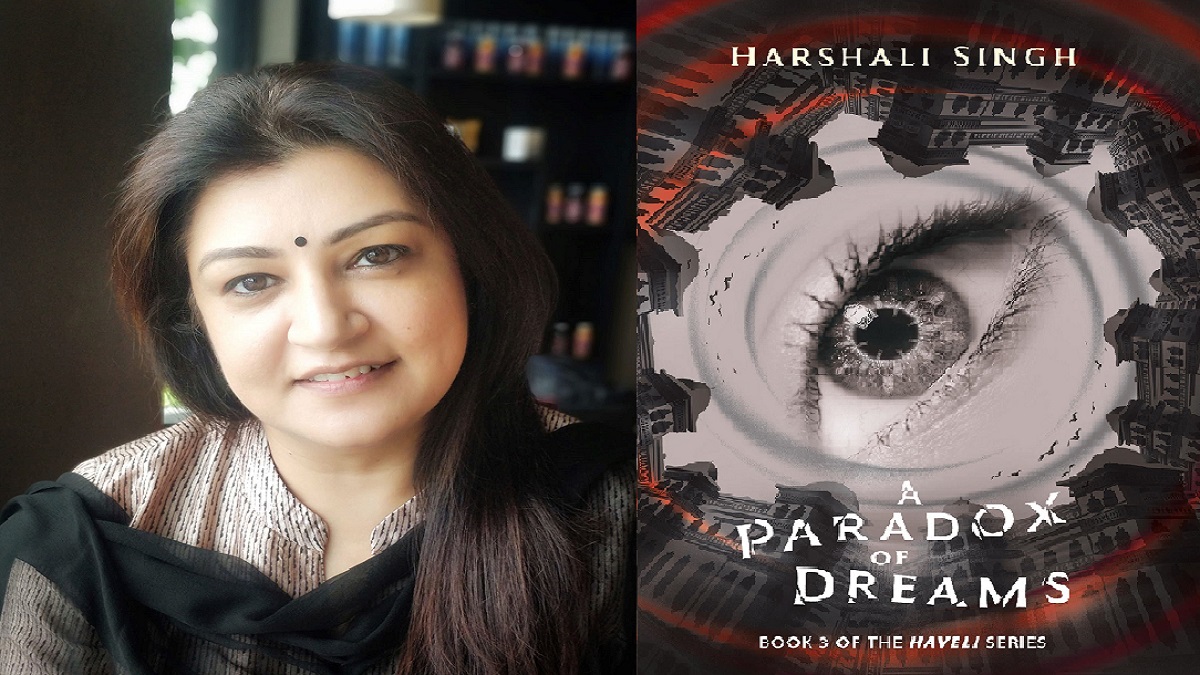Dr Harshali Singh is a New Delhi based Member of the Consumer Grievance Redressal Forum- BYPL, a former member at the Consumer District Redressal Forum, an Author, a Poet, an academician, a teacher trainer, an Occupational Therapist, an avid reader and a passionate Painter.
She has written in several literary genres ranging from poetry to fiction, columns to essays. She is the contributing author in several anthologies and regularly writes for e-magazines. She is the author of the Haveli Series, is currently working on the fourth book in the eight-book series, and is one of the Write India- Season 2 winners.
She believes that her role as a Member Judge in the consumer forum, a mentor and a teacher trainer give her a vast arena to draw insights and understand people better while continuously broadening her own acumen and perception. Painting is another way that she finds inspiration.
She has chaired discussions with eminent personalities in their chosen fields of World Peace, Meditation, Infertility and Social Causes and stalwarts in the field of Writing.

- Tell us something about your early life and journey up to here.
Born and brought up in South Delhi, I lived in a nuclear family, desperately wanting to be a part of a large family. My childhood and youth were spent in the comfortable company of books as a lonely middle child. Finding solace from the monotony of life in their exciting, dramatic plots and pages became second nature. After graduating as an Occupational Therapist, my life veered from the path I thought I would take so completely that there was no going back. I worked in the field of education for more than a decade. But life again threw a curveball, and I began my tenure as a Consumer forum member. I realized how much I enjoyed Law and its significance and continue in this field of work.
As a writer, I believe that things happen to us when they are destined to and not a moment sooner.
I was always writing, but my writing journey has been a lot of meandering, a lot of ambling and some pacing thrown in for good measure. I realized I needed to learn the nuances or foundation required to build on and present a story in long-form. That was how I began writing- in creative bursts. I had to learn how to pace myself, how to plot a story and then bring it to its logical conclusion. It is a process that most writers go through.
- Being a woman, do you have to face any hardships in your personal or professional life?
Personally, I let my pen do the talking. I don’t engage too much. I know I am firm but polite. But to be taken seriously, I had to know my subject thoroughly while I knew my male counterparts could learn on the job and that too in their own time. The expectations were different, without an iota of doubt.
I’m reminded of what Simone de Beauvoir wrote- ‘humanity is male, and man defines women, not in herself but as a relative to him, she is not regarded as an autonomous being. He is the subject; he is the Absolute- she is the other.’ We may say that this was a long time ago, but I don’t think much has changed. Working in a climate where you’ve been historically excluded can lead women to question their abilities.
No doubt, the participation of women has increased dramatically, and men have ventured into what was earlier seen as women-centric jobs. This encouraging influx has not been accompanied by equality for women in terms of rank attainment, leadership roles and salaries. By and large, men feel uncomfortable answering to female bosses. We all have felt their discomfort in some form or manner, especially when one is sitting on a dais.
Whenever I catch myself stepping into that quicksand, I quickly focus on something creative, take a break and write or paint or play the sitar. Because I’ve realised that creative pursuits, especially writing, help and allow my brain to reboot. This allows me to see more clearly, find new connections, and devise better solutions to problems in my workplace.

- What was the turning point in your life afterwards?
One learns to accept and find ways around the problem. Choosing battles that are more important essentially becomes second nature. Holding the door wider for the coming generation is more pertinent. Supporting struggling women while looking to give back and feeling gratitude for all the small blessings keeps me grounded.
As a writer, I can bring social issues to the fore by writing and documenting the struggles that women face every day due to these prejudices that seem woven into our societal fabric. We are in a relay race, and the baton of bringing about a change is now in our hands. The tall women who came before us have already opened doors and minds of society. Therefore, the onus now lies on us to act responsibly, open the door wider, and leave behind a legacy that the coming generation can hold up as an example. How can we then not try our hardest to better the narrative of a woman who is equal and empowered?
- What inspired you initially to take up writing?
My writing is a combination of many small and big occurrences that I had observed as a girl and then as a woman in Indian society that I felt compelled to write the books. I want to lay threadbare all the crimes against women that are not being addressed. I want to make people delve into themselves and question their intent when they judge a person. Who is to say what is right and what is wrong for another person when we move the line that separates right from wrong constantly in our own lives?
Writing is cathartic, an exploration and a way to question. And my love for reading never let my quill be dry for too long. I constantly write because it is not something I do for others. It is something I do for myself to feel alive and to feel connected to my thoughts and to the ether.
I don’t think I chose to write. I believe the muse chose me.
I love the process, the journey of bringing the story and character alive. The best compliments are when the readers say they found my characters relatable. I wish to unveil the evils that plague our society pertaining to women and children, especially in a way that makes the reader ponder.

- We would love to know about your ‘Haveli series’? Would you like to share the origin and evolution of the same?
A chance visit to the Haveli of the 100 doors that exists even today in the by lanes of old Delhi in Naugraha became the inspiration to write the story about the large Sharma family. I wondered about all the people who had passed through the doors I was entering. If the walls could tell us the stories of all the people who had lived within them, what kind of stories would they tell – stories of love, grief, horror, joy or numbness.
I wondered who all had touched the tall pillars that stood silently observing the humans? Were the hands henna hued or hard? What skeletons lay behind the wooden cupboards? Whose eyes had peeped down from the jallis of the Haveli?
When I entered the foyer, I saw a sunbeam with dancing dust motes fall near my feet. It was surreal, the tall columns, the peeping roshandans and curly grills. It was a mystical and magical moment, and the snapshot got captured in my subconscious. I knew then I would make this Haveli my own one day.
The Haveli became the foundation on which the stories of the newest residents- Arun Sharma, his wife Uma and their 7 children, Aruna, Bhavya, Charu, Dheeraj, Etti, Fanny and Gina, were based.
The Haveli series has always been brimming inside me. It was just that I thought it would be one book. But when I began writing Aruna’s story, I knew she would have to have her own book so that I could do justice to her character. It, therefore, became a series.
The Haveli itself is an omnipresent character in the lives of the Sharma family. The Haveli became the sutradhar, the narrator in the books who commands love and respect and has a strange connection with the lady of the manor, Uma. The silent sentinel stands beside the family as they go through life and its peaks and valleys.
- Do you focus on some kind of target audience or prefer going with the flow?
Whilst I am essentially an organic writer and start my story with an idea or question or a topic that intrigues me, letting the characters speak and take me on their journey while having a plotline in my mind. Therefore, the first draft is a free-flowing story with a start, a middle, and an end. In the second draft, I re-write and cut out parts to make the story tight.
Because, very frankly, I don’t think an author can exclusively be only one kind of writer. As an author, one cannot let the story take over, or the story would just ramble around endlessly. And nor can you treat the story like a formula, as that would lead to a story without a heart. It has to be a delicate balance between the two. I, too, had to learn the fine art of plotting while editing, keeping myself within the confines of the directives I give myself so that the story arch is clear.
I don’t start writing the story with anything else in my mind except the characters and what I want to say through them.
‘Begin in delight and end in wisdom‘ has held me in good stead.
- What would you like to suggest to the young Gen Zs?
I would say-
- Have a clear idea /thought on why you want to write and for whom.
- Join a workshop and learn the rules of storytelling.
- Write consistently every day without fail because you are still building the habit.
- Read Read Read. As much and as widely as you can. Join Book Clubs and observe how people react to books and review them.
- Write what feels natural to you. Your audience is out there; they will find you.
- Keep a dedicated progress chart, list or an excel sheet with a deadline. Try and stick to that as best as you can.
- Surround yourself with people who are writing or reading. They are your support group.


